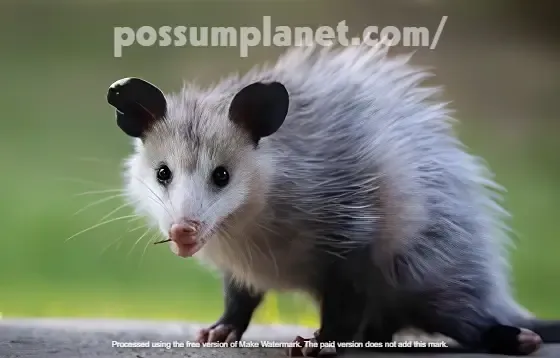Introduction
American Possums, once regarded as wild creatures, are gaining popularity as unique and endearing pets. As more individuals embrace the idea of keeping possums at home, it's crucial to understand the essentials of their care. In this guide, we'll explore the 10 essential tips for providing a loving and suitable environment for these charming marsupials.
Understanding American Possums
American Possums, scientifically known as Didelphimorphia, are small to medium-sized marsupials known for their distinctive appearance and behavior. Unlike rodents, they have prehensile tails and are primarily nocturnal. Understanding their unique characteristics is the first step in ensuring a happy and healthy life for your possum companion.
Legal Considerations
Before bringing an American Possum home, it's imperative to research and adhere to local regulations. Check for any permits or licenses required to keep a possum as a pet. This not only ensures legality but also contributes to the well-being of the possum population.
Choosing the Right Possum
Possum species vary, and choosing the right one for your lifestyle is crucial. Additionally, consider the age of the possum, as caring for a joey requires different considerations than caring for an adult.
Habitat Setup
Creating a suitable habitat is essential for your possum's comfort. Whether indoor or outdoor, ensure that the enclosure provides security, warmth, and stimulation. A well-designed habitat contributes significantly to the possum's overall well-being.
Nutritional Needs
Understanding the nutritional requirements of your possum is paramount. A balanced diet is essential for their health, and it's crucial to avoid common mistakes in their nutrition. Consult with a vet to ensure you're meeting your possum's dietary needs.
Healthcare and Veterinary Visits
Regular check-ups are vital for possums. Identify common health issues and take preventive measures. A prompt visit to the vet can make a significant difference in your possum's quality of life.
Socialization and Bonding
Possums are social animals, and building a strong bond with your pet is essential. Spend quality time together, engage in interactive play, and create a positive environment for your possum to thrive.
Training and Enrichment
Basic training, including litter training, is essential for a harmonious coexistence. Keep your possum mentally stimulated with enriching activities to prevent boredom.
Handling and Safety Measures
Learn the proper ways to handle your possum to ensure both your safety and theirs. Implement safety precautions in your home to create a secure environment for your pet.
Grooming Practices
Regular grooming sessions contribute to your possum's hygiene and well-being. Develop a grooming routine to keep your possum clean and healthy.
Common Myths about Possums as Pets
Address common misconceptions about possums as pets. Dispel myths and provide accurate information to encourage responsible ownership.
Environmental Impact
Explore the role of possums in the ecosystem and emphasize the importance of responsible pet ownership. Possums, even as pets, play a role in maintaining a balanced environment.
Success Stories
Highlight positive experiences of possum owners. Share heartwarming anecdotes that showcase the joys and rewards of caring for American Possums.
Conclusion
In conclusion, caring for American Possums as pets requires dedication, knowledge, and a genuine love for these unique creatures. By following the essential tips outlined in this guide, you can create a fulfilling and enriching life for your possum companion while contributing to the responsible and ethical ownership of these remarkable marsupials.
FAQs
Can I keep any species of possum as a pet?
- It's essential to research and choose a possum species that is legal and suitable for domestic life.
What do possums eat, and how often should I feed them?
- Possums have specific dietary needs; consult with a vet for a balanced diet plan and feeding schedule.
Are possums prone to any specific health issues?
- Regular veterinary check-ups help identify and address potential health issues in possums.
How can I socialize with my possum and build a bond?
- Spend quality time together, engage in interactive play, and create a positive environment for bonding.
Do possums make good companions for families with children?
- While possums can be affectionate, it's crucial to supervise interactions with children and teach them how to handle the possum safely.


